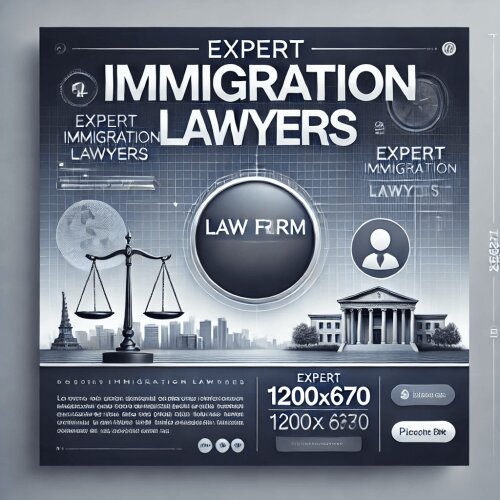Best Restructuring & Insolvency Lawyers in Long Beach
Share your needs with us, get contacted by law firms.
Free. Takes 2 min.
List of the best lawyers in Long Beach, United States
About Restructuring & Insolvency Law in Long Beach, United States
Restructuring and insolvency law in Long Beach, California, is designed to help individuals and businesses manage financial distress. This area of law provides legal frameworks for reorganizing, restructuring, or dissolving companies or dealing with overwhelming personal debts. Located within Los Angeles County, Long Beach follows both California state laws and federal bankruptcy statutes. These laws aim to protect the rights of both debtors and creditors, offering structured ways to deal with debt through negotiations, court-approved plans, or liquidation when necessary.
Why You May Need a Lawyer
You may need a restructuring and insolvency lawyer in Long Beach if you or your business are facing severe financial difficulties. Common situations where legal advice is essential include:
- You are unable to repay debts and are considering bankruptcy.
- Your creditors are suing you to recover unpaid debts.
- You need guidance on negotiating with lenders or restructuring debt obligations.
- Your business is struggling and you want to explore options for salvaging it through reorganization.
- You are a creditor seeking to recover debts from a bankrupt individual or company.
- You want to protect valuable assets from liquidation during insolvency proceedings.
- You are concerned about personal liability in connection with a business insolvency.
Legal complexities in restructuring or insolvency cases often require professional help to ensure your rights are protected and the best possible outcome is achieved.
Local Laws Overview
Long Beach residents and businesses are subject to both federal bankruptcy laws and specific California statutes. The most common bankruptcy filings are Chapter 7 (liquidation) and Chapter 13 (reorganization for individuals), as well as Chapter 11 (reorganization for businesses). California law introduces its own exemptions and procedures relating to property protection, foreclosure, and debt collection, which can differ from federal law.
Key aspects of local law include:
- California's homestead exemption protects a portion of home equity in personal bankruptcies.
- State law limits the types and amounts of property creditors can seize.
- Specific procedures exist for both voluntary and involuntary bankruptcy filings.
- California courts may require mediation or settlement conferences for certain debt disputes.
It's important to note that bankruptcy cases in Long Beach are handled by the United States Bankruptcy Court for the Central District of California. Local rules and court procedures may apply, impacting filing requirements and timelines.
Frequently Asked Questions
What is the difference between restructuring and insolvency?
Restructuring refers to the process of reorganizing a company's debts and operations outside of or within court proceedings to improve financial stability. Insolvency is a financial state where an individual or business cannot pay their debts when they are due.
Do I have to file for bankruptcy if my business is struggling?
Not always. Bankruptcy is one of several options. Alternatives include negotiating directly with creditors, entering into out-of-court workouts, or pursuing an assignment for the benefit of creditors. A legal professional can help you evaluate available options.
What types of bankruptcy are most common in Long Beach?
Common types include Chapter 7 (liquidation for individuals or businesses), Chapter 13 (rehabilitation for individuals with regular income), and Chapter 11 (reorganization for businesses and, occasionally, high net-worth individuals).
How does bankruptcy affect my credit score?
Bankruptcy will negatively impact your credit score and remain on your credit report for up to 10 years, depending on the type filed. However, it also allows you to address unmanageable debt and rebuild credit over time.
Can I keep my home or car if I file for bankruptcy in Long Beach?
California exemptions, including the homestead exemption, may allow you to protect some or all of your home equity and certain vehicles. The specific exemptions that apply depend on which set of state or federal exemptions you choose when filing.
What is automatic stay and how does it help?
The automatic stay is a court order that immediately stops most collection actions, foreclosures, lawsuits, and wage garnishments when you file for bankruptcy. This provides temporary relief while your case is processed.
Will all my debts be erased in bankruptcy?
Not all debts are dischargeable in bankruptcy. Common exceptions include child support, recent taxes, student loans (with rare exceptions), and court fines. Your attorney can provide guidance on what debts you can discharge.
What should I prepare before meeting a restructuring or insolvency lawyer?
You should gather recent financial statements, a list of assets and liabilities, income and expense records, tax returns, loan documents, and any legal notices from creditors.
How long does the bankruptcy process take?
Chapter 7 typically takes three to six months from filing to discharge, while Chapter 13 and Chapter 11 proceedings can last several years, depending on the proposed repayment/reorganization plan.
Can I file for bankruptcy without a lawyer?
Although it is legally possible, navigating bankruptcy laws and court procedures can be complex. A lawyer can help ensure forms are correctly filed, deadlines are met, and your interests are protected throughout the process.
Additional Resources
If you need more information or support about restructuring and insolvency in Long Beach, consider these local and national resources:
- United States Bankruptcy Court - Central District of California (handles bankruptcy cases for Long Beach residents and businesses)
- California Department of Business Oversight (provides regulatory guidance for financial matters)
- Legal Aid Foundation of Los Angeles (offers low-cost or free legal services for qualified individuals)
- Los Angeles County Bar Association - Lawyer Referral Service (for attorney recommendations)
- Internal Revenue Service - Insolvency & Bankruptcy Tax Guidance
Next Steps
If you are considering legal assistance regarding restructuring or insolvency in Long Beach, here are practical steps to follow:
- Assess your financial situation and determine your primary concerns and goals.
- Gather all relevant financial documents, loan statements, and correspondence with creditors.
- Contact a qualified attorney who specializes in restructuring and insolvency law in your area.
- Prepare a list of questions or potential outcomes you wish to discuss during your consultation.
- Follow through on your lawyer’s advice, complete any required paperwork promptly, and stay informed about important dates and deadlines in your case.
Seeking timely legal advice can help you make informed decisions, avoid common pitfalls, and work toward a fresh financial start.
Lawzana helps you find the best lawyers and law firms in Long Beach through a curated and pre-screened list of qualified legal professionals. Our platform offers rankings and detailed profiles of attorneys and law firms, allowing you to compare based on practice areas, including Restructuring & Insolvency, experience, and client feedback.
Each profile includes a description of the firm's areas of practice, client reviews, team members and partners, year of establishment, spoken languages, office locations, contact information, social media presence, and any published articles or resources. Most firms on our platform speak English and are experienced in both local and international legal matters.
Get a quote from top-rated law firms in Long Beach, United States — quickly, securely, and without unnecessary hassle.
Disclaimer:
The information provided on this page is for general informational purposes only and does not constitute legal advice. While we strive to ensure the accuracy and relevance of the content, legal information may change over time, and interpretations of the law can vary. You should always consult with a qualified legal professional for advice specific to your situation.
We disclaim all liability for actions taken or not taken based on the content of this page. If you believe any information is incorrect or outdated, please contact us, and we will review and update it where appropriate.











